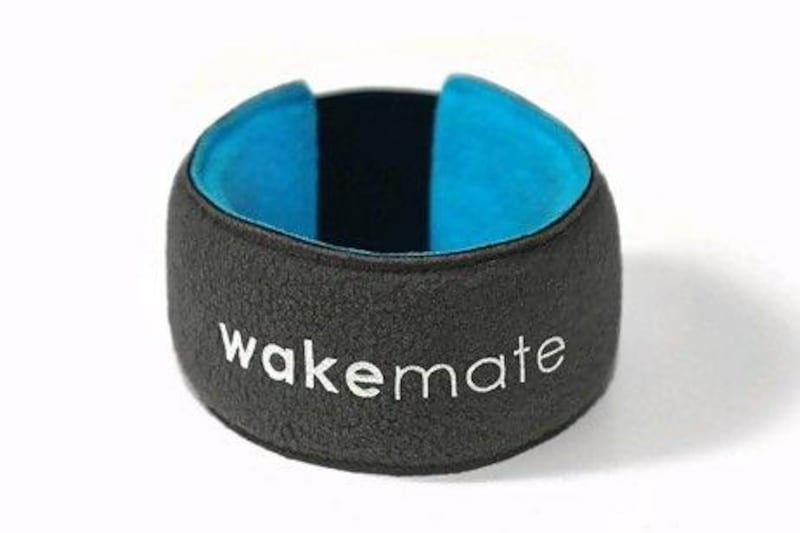Q&A: In an article he wrote for The Huffington Post, Thomas Goetz explains why sleep gadgets are becoming so prevalent.
What is driving gadget makers to come out with so many sleep-related devices? Two trends: sleep research that has given scientists a new understanding of what constitutes a good night's sleep, and cheaper, better sensors that make these tools affordable and easy to use.
How exactly do some of these electronics help people in tracking their sleep patterns? The premise of monitoring our sleep is a bit tricky, since we're, uh, supposed to be asleep. So we need to use sensors and proxies to measure things that we hope correspond to sleep quality through the night.
Why not just have people with sleeping issues go to a sleep lab for testing? Collecting the data requires the person with sleep troubles to leave their home environment – their own bedroom, their own bed, their own sheets. That's not restful.
We spend about a third of our lives asleep, and now the consumer electronics industry is pushing harder than ever to help us out with that time.
In recent years, a handful of devices have been released to help the stressed-out measure and improve their sleep quality, or wake them up softly from slumber at an optimal time.
Some gadgets are wrist-based and created from research on the science of sleep. The US$99.95 (Dh367.10) fitbit, for one, is a small motion sensor that slips on to the wrist and helps monitor sleeping patterns. Another gadget for the wrist: the WakeMate, which has been praised for its comfortable felt-based cover but can become annoying because it triggers an alarm up to 20 minutes earlier than set if someone moves in their sleep, reviewers have warned.
For $99 to $149, the Sleeptracker claims to monitor sleep cycles and wakes up people at the "optimum time", which is during the lightest phase of a sleep cycle. It can also connect to a computer to spit out sleep phase data that track patterns over time.
But other sleep products, quite frankly, may annoy some even though they're derived from research findings.
My Wake Up Call, for example, was created by a former Broadway star and costs $59.95 as an iPod dock or alarm clock, or $99.95 for an annual subscription that works on smartphones.
It basically projects motivational messages in the morning because "research shows that a person's mindset when they first wake up helps set the tone for the rest of their day".
For those truly lacking the motivation to wake up, there's always Tocky and Clocky. These robotic alarm clocks jump 3 feet from a night stand and roll away beeping or playing personal messages until you jump out of bed and switch them off.
Total damage: $45 to $69, although they'll also play your favourite songs via MP3 as they roll around the room.
Top 5: Sleep-making devices
1 Marpac SleepMate White Noise Machine ($49.95)
2 Marsona Sound Conditioner ($69.95)
3 Breezee Soothing Shell Sound Machine ($29.98)
4 Tranquil Moments White Noise Sound Machine ($69.95)
5 Sound Oasis Travel Therapy White Noise Machine Alarm ($199.99)
Source: Amazon.com
The Quote: Fatigue is the best pillow. Benjamin Franklin, American inventor and statesman





